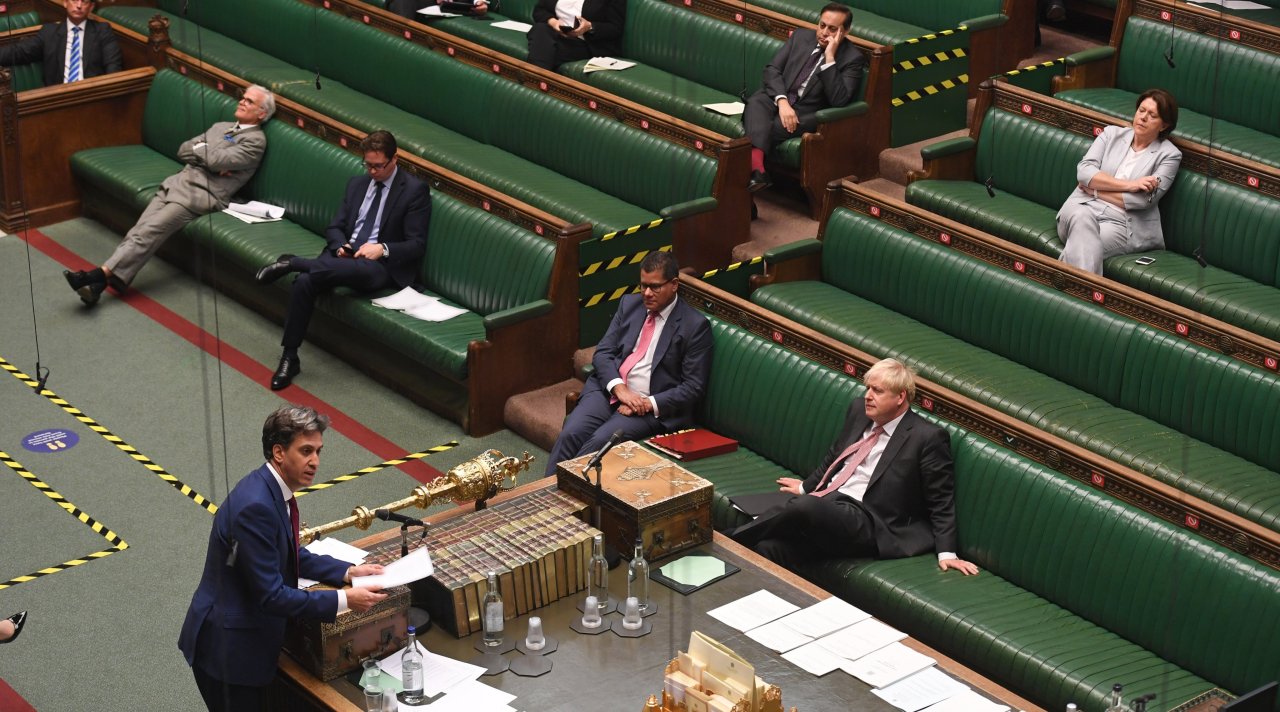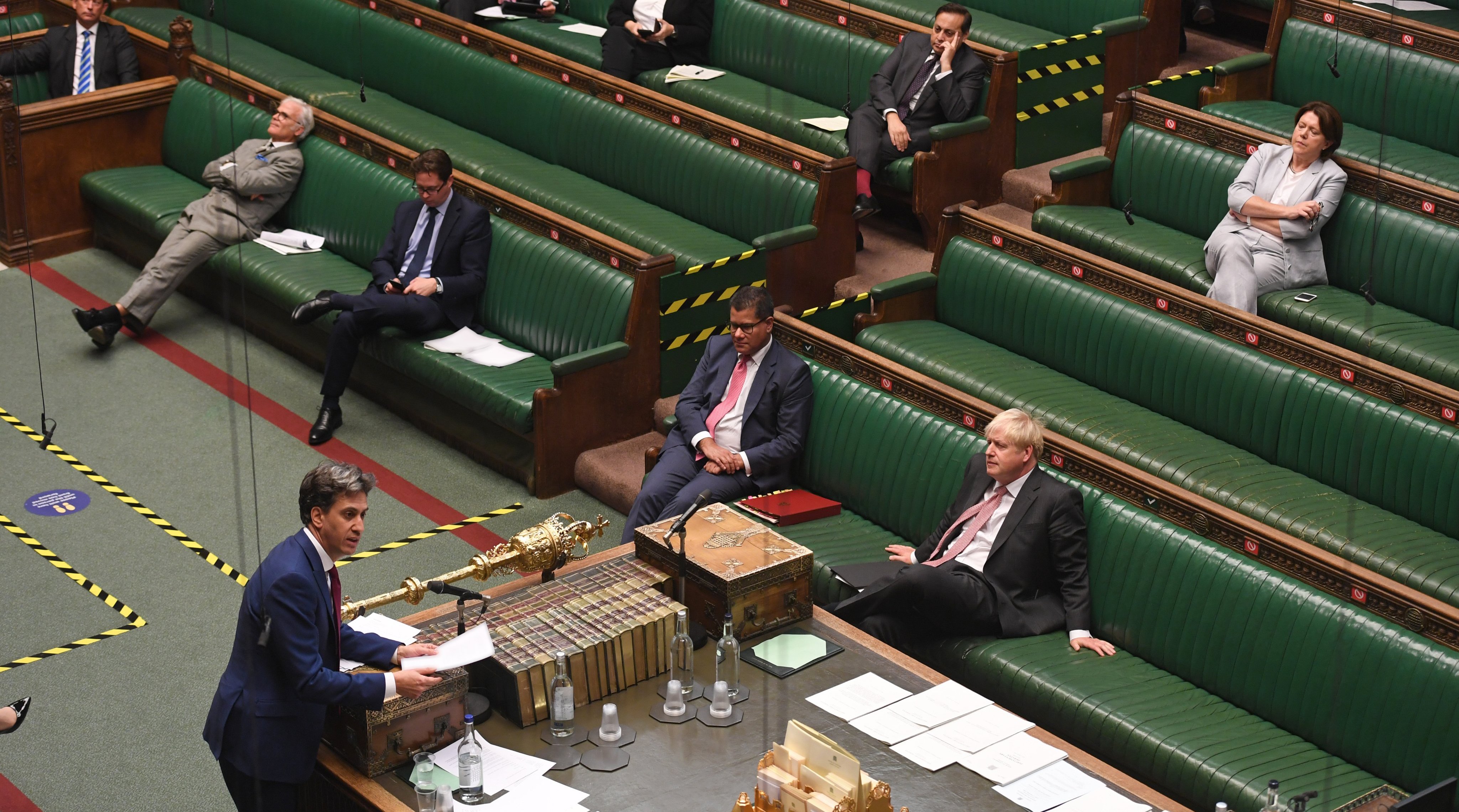Last night’s
second reading of the Internal Market Bill passed with a comfortable 77 votes for the government. In truth, this was always going to happen. A second reading vote confirms merely the principle of a bill so the real question was over the size of any potential rebellion
rather than the future of the legislation itself.
The problem
comes next Tuesday when Bob Neill’s amendment is laid before the House. This would give MPs a vote on whether the UK chooses to break the Withdrawal Agreement when it comes to customs checks in the Irish Sea or state aid interventions for NI businesses.
In the
meantime, abstentions on the Bill do prove instructive when it comes to working out who might cause potential problems for the whips. Although it is worth noting that some of those missing from last night’s vote weren’t necessarily rebels, here is the list in full:
Sajid Javid – The former Chancellor tweeted out his reasoning for not backing the Internal Market Bill, stating that it was not necessary for the UK to break international law.
Geoffrey Cox – The former Attorney General wrote an article for the Times accusing the Prime Minister of doing ‘unconscionable’ damaging to the UK’s reputation through his proposals to break international law.
Bob Neill – Author of the Neill amendment that will give MPs control over whether to breach the Withdrawal Agreement. He argued that the Withdrawal Agreement opt-out created a ‘very real difficulty’ when it came to voting for the Bill.
Jeremy Wright – The former Attorney General came out against the changes arguing that it breached the ministerial code while also claiming that it would weaken Britain’s position on the international stage.
Charles Walker – Argued vigorously in parliament against the bill.
Tobias Ellwood – Tweeted that he was unable to support the Bill unamended as it damaged the UK’s international ‘role model’ status.
George Freeman – Tweeted that he shared the concerns of his fellow rebels and could not support the Bill in its current form.
Rehman Chishti – Posted a letter underlining his reasons for not supporting the Internal Market Bill, saying that as a former lawyer ‘respecting the rule of law and honouring one’s word’ was very dear to him.
Ben Spencer – Argued in the Commons that the Withdrawal Agreement opt-out caused him ‘great concern’ and that such an action should only be taken ‘in extremis’.
Gary Streeter – Released a statement on twitter informing his constituents that he would not be voting for the Bill.
Simon Hoare – Tweeted that adherence to international law should not be ‘bartered away’.
Oliver Heald – Did not put out his own message, instead he retweeted fellow rebel Simon Hoare’s message of support for Micheal Howard.
Theresa May – The former PM is currently at a conference in South Korea (although she has made her dislike for the Bill well known)
Karen Bradley – Has yet to give a reason for her abstention although notable that she served as Northern Ireland Secretary under Theresa May.
Julian Smith – The fellow former Northern Ireland Secretary has yet to explain why he voted against the Bill. He was fired by Boris Johnson even after he managed to break the Stormont deadlock earlier this year.
Liam Fox – No explanation given, although it’s worth remembering that Fox is running to head the World Trade Organization. Voting for a bill that explicitly breaches international law would all but torpedo his admittedly slim chances of bagging the role.
Graham Brady – The chair of the 1922 Committee will be chairing some of the committee stages of the Bill so chose to remain impartial. One of his vice chairs, Charles Walker, came out vociferously against the Bill.
Stuart
Andrew
Crispin
Blunt
Jackie
Doyle-Price
Richard
Graham
Stephen Hammond
James Heappey
Damian
Hinds
Jack Lopresti
Tim Loughton
Owen Paterson
John Stevenson
UPDATE
Christopher Chope – Made a point of order in the Commons on Tuesday afternoon stating that there had been a mix up with the whips and that he had intended vote for the Bill.
For any updates email gcarter@spectator.co.uk








Comments